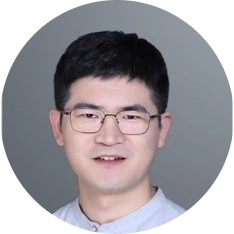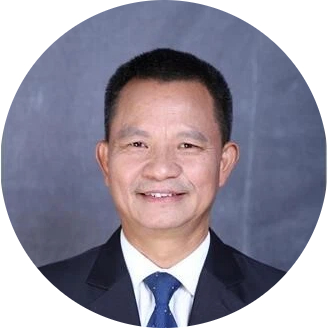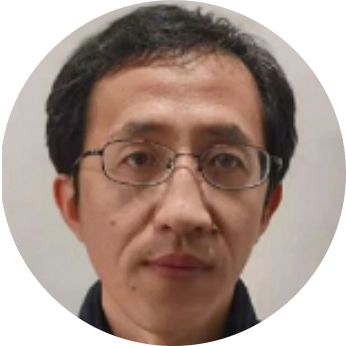Special Session 13 会议特别专题 13
Theory and Applications of Frequency Diverse Array
Description:
Frequency Diverse Array (FDA), as an emerging array
technology, has recently garnered extensive
attention in the research community. By introducing
frequency increments between adjacent transmit array
elements, FDA enables forming space-time coupled
transmit beampatterns, bringing great application
potentials to fields such as radar, communications,
and electronic countermeasures. This special session
aims to gather innovative research achievements from
scholars worldwide in the field of FDA, exploring
key challenges in its theory and applications, and
ultimately promote both theoretical advancements and
engineering applications of FDA technology.
Session organizers
Prof. Jingwei Xu, Xidian University, China
Prof. Guisheng Liao, Xidian University, China
Dr. Keyi Wang, Xidian University, China
Prof. Wen-Qin Wang, University of Electronic Science
and Technology of China, China
Prof. Shunsheng Zhang, University of Electronic
Science and Technology of China, China
The topics of interest include, but are not limited to:
▪ Methodology of electromagnetic wave modulation in FDA
▪ Receive processing scheme of FDA
▪ FDA-MIMO technique
▪ Anti-jamming and clutter suppression technology of FDA
▪ Novel concepts in waveform diversity
Submission method
Submit your Full Paper (no less than 5 pages with two colums) or
your paper abstract-without publication (200-400
words) via
Online Submission System, then choose Special
Session 13 (Theory and Applications of Frequency Diverse Array)
Template Download
Introduction of
Session organizers
 Prof. Jingwei Xu,
Xidian University, China
Prof. Jingwei Xu,
Xidian University, China
Jingwei Xu was born in Shandong province, China. He
received the B.S. degree in electronic engineering,
and the Ph.D. degree in signal and information
processing, both from Xidian University, China, in
2010 and 2015, respectively. From 2015 to 2017, he
was a lecturer at School of Electronic Engineering
in Xidian University. From 2017 to 2019, he was a
Postdoctoral Fellow under “Hong Kong Scholar
Program” at Department of Electronic Engineering,
City University of Hong Kong. From 2019 to 2024, he
was an Associate Professor at School of Electronic
Engineering in Xidian University. Since 2024, he is
Professor at School of Electronic Engineering in
Xidian University.
His research interests include array signal
processing, space-time adaptive processing,
multiple-input multiple-output radar, frequency
diverse array radar, waveform diversity, and
multi-functional fusion processing.
He received the excellent Ph.D. dissertation of the
Chinese Institute of Electronics, the Outstanding
Youth of Shaanxi Province, and the NSFC Excellent
Youth Science Fund. He also received the First Prize
of Shaanxi Nature Science Award. He currently serves
as Associate Editor for IEEE Transactions on
Aerospace and Electronic Systems.
 Prof. Guisheng Liao,
Xidian University, China
Prof. Guisheng Liao,
Xidian University, China
Guisheng Liao was born in Guilin, Guangxi, China, in
1963. He received the B.S. degree in mathematics
from Guangxi University, Guangxi, China, and the
M.S. degree in computer software and Ph.D. degree in
signal and information processing from Xidian
University, Xi’an, China, in 1985, 1990, and 1992,
respectively. He serves as the Dean of the Hangzhou
Institute of Technology, Xidian University. Since
2009, he has been the Evaluation Expert for the
international cooperation project of Ministry of
Science and Technology, China. Since 2007, he has
been the Leader of Yangtze River Scholars Innovative
Team and devoted in advanced techniques in signal
and information processing. In 2006, he was the
panelists for the medium- and long-term development
plan in high-resolution and remote sensing systems.
From 1999 to 2000, he was a Senior Visiting Scholar
with the Chinese University of Hong Kong, Hong Kong.
His research interests include array signal
processing, space-time adaptive processing, radar
waveform design, and airborne/space surveillance and
warning radar systems.
 Dr. Keyi Wang,
Xidian University, China
Dr. Keyi Wang,
Xidian University, China
Keyi Wang was born in Henan, China in 1998. She
received the B.S. degree in electronic information
science and technology from Shaanxi Normal
University, Xi’an, China, in 2019. She is currently
working toward the Ph.D. degree in the National Key
Laboratory of Radar Signal Processing, Xidian
University, Xi’an, China. Her research interests
include frequency diverse array radar, space-time
adaptive processing, multiple-input multiple-output
radar and synthetic aperture radar imaging. She has
published nearly 8 papers as the first author in
journals such as IEEE Transactions on Geoscience and
Remote Sensing, Transactions on Aerospace and
Electronic Systems and Signal Processing. She has
also won the Best Presentation Award at ICICSP 2022
and the Best Oral Presentation Award at the National
PhD Symposium on Information and Communication
Engineering.
 Prof. Wen-Qin Wang,
University of Electronic Science and Technology of
China, China
Prof. Wen-Qin Wang,
University of Electronic Science and Technology of
China, China
Wen-Qin Wang received the B.E. degree in electrical
engineering from Shandong University, Shandong,
China, in 2002, and the M.E. and Ph.D. degrees in
information and communication engineering from the
University of Electronic Science and Technology of
China (UESTC), Chengdu, China, in 2005 and 2010,
respectively. From March 2005 to 2007, he was with
the National Key Laboratory of Microwave Imaging
Technology, Chinese Academy of Sciences, Beijing,
China. Since September 2007, he has been with the
School of Information and Communication Engineering,
UESTC, where he is currently a Professor and the
Director. From June 2011 to May 2012, he was a
Visiting Scholar with Stevens Institute of
Technology, Hoboken, NJ, USA. From December 2012 to
December 2013, he was a Hong Kong Scholar with the
City University of Hong Kong, Hong Kong. From
January 2014 to January 2016, he was a Marie Curie
Fellow with the Imperial College London, U.K. His
research interests span the area of array signal
processing and circuit systems for radar,
communications, and microwave remote sensing.
 Prof. Shunsheng Zhang,
University of Electronic Science and Technology of China, China
Prof. Shunsheng Zhang,
University of Electronic Science and Technology of China, China
Shunsheng Zhang received the Ph.D. degree in signal
and information processing from the Beijing
Institute of Technology, Beijing, China, in 2007.
After that, he joined the University of Electronic
Science and Technology of China, Chengdu, China, and
engaged in teaching and scientific research. In
2009, he became an Associate Professor. From 2014 to
2015, he was a Visiting Scholar with the Department
of Electrical and Computer Engineering, National
University of Singapore, Singapore. He is currently
a full-time Professor. His major research interests
include radar imaging, target detection, and
artificial intelligence applications.
